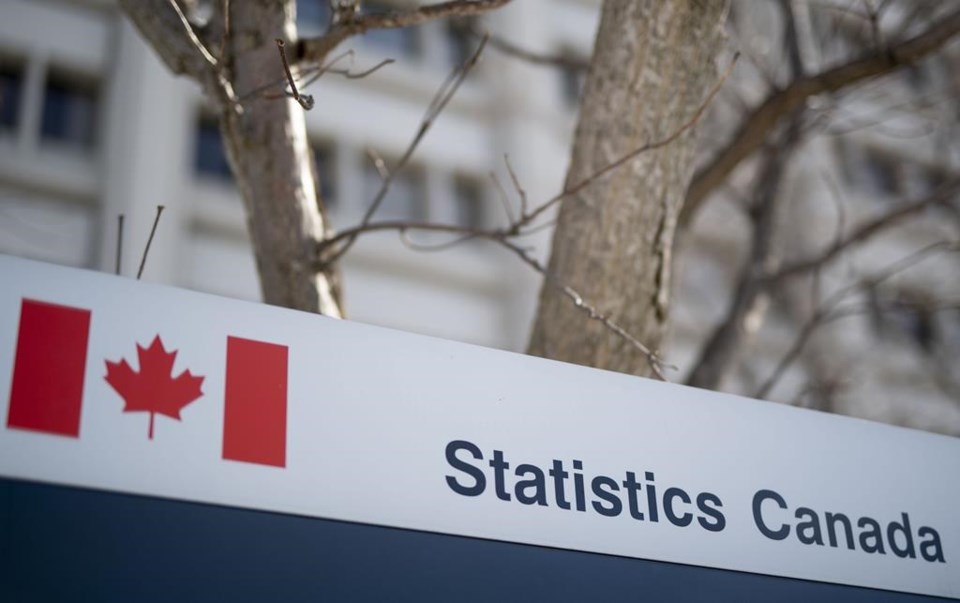Statistics Canada saysthere was a notable decline in new cancer diagnoses in 2020, possibly due to pandemic-relateddisruptions in screening services.
The incidence rate of new cancer cases dropped by 12.3 per cent in 2020, compared with the average annual rate over the previous five-year period.
StatCan data released Tuesday show there were 450 new cases per 100,000 people and that overall, cancer diagnoses among males fell by 13.2 per cent. That was more of a decrease than for females, who saw an11.4 per cent dropin new casesduring the first year of the pandemic.
Difficulties accessing primary care and fewer in-person appointments due to COVID-19 lockdowns as well as travel restrictions may have impacted the registration of new cancer cases, StatCan said.
The data show that after the first lockdowns in mid-March 2020, the number of registered cancer cases dropped from 11,510 to 8,640 in April and 9,235 in May.
But the case count returned to 11,585 in June and from September to December, the numbers were either comparable to or higher than the previous five-year average.
StatCan said the incidence rates of the four most commonly diagnosed cancer types — breast, lung and bronchus, prostate and colorectal cancers — all appear significantly lower in 2020than the 2015-to-2019 average rate but the incidence rates for both throat and anal cancers increased.
Dr. Sheila Singh, a pediatric neurosurgeon at McMaster Children's Hospital in Hamilton, Ont.,said the lack of timely care came at a high cost for many patients whose cancer progressed as they waited for treatment in a health-care system that became "too cautious and timid" as diseases other than COVID-19 were sidelined.
"Almost everything I treat is worse than COVID. So I was really disturbed by the messaging that we sent out during the pandemic," Singh said of public health officials' ongoing emphasis on strict precautions even after they'd gained a better understanding of the new virus and a vaccine was developed.
"There was so much collateral damage," she said of patients fearing they would catch COVID-19 if they sought treatment in a hospital even after taking preventive measures.
Some parents did not bring their children to hospital because they interpreted any symptom as COVID-19, said Singh, who is also director of McMaster University's Centre for Discovery in Cancer Research.
In general, many cancer caseswent undiagnosed because patientsfeared seeing a doctor or did not even have one, Singh said, adding that even people who had primary care could not be assessed on a screen as virtual visits became the norm.
"I think in the past two or three years, we have seen more cases of advanced cancer than I have ever seen," Singh said. "The sad thing is there are so many cases where people come in with advanced cancer and we will say to them, 'If we had picked this up six months ago this would have been treatable and now it's inoperable.'"
Singh said she expects to see a rise in cancer mortality rates as a result.
On Monday, British Columbia Health Minister Adrian Dix announced the province will be referring some cancer patients to two clinics in Washington state in an effort to reduce wait times for radiation, starting with those who have breast and prostate cancer and have waited the longest for treatment.
He said the two-year partnership with the clinics, starting next week, is necessary because nearly 83 per cent of B.C. patients currently start radiation within four weeks, the national benchmark for the maximum recommended amount of time considered appropriate to wait, according to the Canadian Institute for Health Information (CIHI).
The Health Ministry said BC Cancer explored options that would allow patients to have radiation therapy in other provinces but they were already dealing with their own needs or helping other jurisdictions in Canada.
"For example, due to a shortage of radiation therapists, patients from Newfoundland and Labrador are being transported to Princess Margaret Hospital in Toronto to receive radiation," the ministry said in an emailed statement.
CIHI said in March that the backlog in cancer surgeries across the country was initially created by delays and cancellations primarily in the first few months of COVID-19, when about 20 per cent fewer procedures were performed compared with before the pandemic.
StatCan said despite pandemic disruptions to cancer diagnoses, the 2020 incidence rates for some cancers were higher than average rates from 2015 to 2019.
For example, it said the incidence rate for throat cancer rose by nearly 14 per cent and anal cancers increased by 3.5 per cent. In the case of anal cancer, it said the rate among females went up by 5.4 per cent.
While both cancers are associated with the human papillomavirus, the incidence rate for cervical cancer, also strongly associated with HPV, did not significantly rise in 2020, StatCan said.
This report by The Canadian Press was first published May 16, 2023.
Canadian Press health coverage receives support through a partnership with the Canadian Medical Association. CP is solely responsible for this content.
Camille Bains, The Canadian Press



